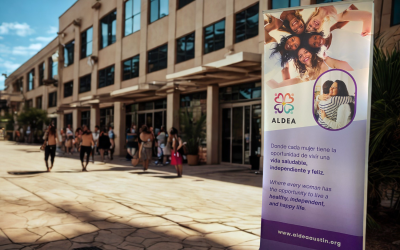I should have known better. But I lacked the experience and made a mistake that hurt someone. This, my friends, is why we need DEI programs.
But before we dive in, let me fast-forward for a minute. I will be brief, I promise.
Who Benefits and Who Suffers When We Lose DEI?
Diversity, Equity, and Inclusion (DEI) programs have been under attack recently, with companies and institutions loudly quietly dismantling them. The narrative often suggests that these initiatives primarily serve Black employees, but the reality is far different.
Texas Rep. Jasmine Crockett put it bluntly: while Black people have become the face of DEI, the primary beneficiaries have actually been white women and Asian individuals.
And now, as these programs disappear, we must ask: Who really loses?
The answer isn’t just Black employees and BIPOC-owned businesses—despite what some in our government would have you believe. It’s veterans, women, people with disabilities, folks in rural USA, and the general public.
The dismantling of DEI doesn’t just roll back progress for a few—it affects all of us.
The Hard Lesson I Learned About Inclusion
Alright. Let’s do this.
When I worked at the University of Texas at Austin (25 years ago dios mío), our maintenance team was retrofitting the sprinkler system, blocking off a staircase. As I walked toward my office, I saw a man with a cane—a blind man—approaching the blockade. He had no way of knowing a provisional ramp had been installed. So, I stepped in to help, explaining the situation and offering to guide him to the ramp.
I was looking down at his feet, making sure he wouldn’t trip. I never looked up. As we stepped onto the ramp, a loud BANG! echoed through the hallway, followed by a sharp OUCH!
He hit his head on a cement arch overhead.
I had the best intentions, but intentions aren’t enough. I lacked awareness and experience. Ignorancia, if you will.
Here’s the thing: Not only am I not blind, I’m also 5’4″. I had walked through that ramp multiple times without ever clocking the cement archway. But this man was nearly 6 feet tall. I focused only on what was obvious to me—his blindness, the ramp, the trip hazards. I didn’t take the whole picture into account.
This is what DEI is really about: learning that we all have biases and blind spots and that even with the best intentions, we can still harm others if we fail to recognize the full scope of their experiences.
DEI Is More Than Just Fulfilling Quotas
If you listen to the news, it seems like most people think DEI is about quotas, nothing more. As my kids would say, “Dude, that is so yesterday!” (Okay, maybe they don’t say that anymore.)
But Diversity, Equity, and Inclusion isn’t about checking boxes. It’s about recognizing that the way we see the world isn’t universal. It’s about understanding that our default way of operating might be excluding (or even harming) others without us realizing it.
DEI programs help us become more mindful and more intentional. They provide us with the tools to meet people’s actual needs—not just our assumptions about their needs.
DEI Makes Businesses (and People) Better
As a manager, I could easily choose to lead my team based purely on my own experiences. But that would mean ignoring the wealth of knowledge and perspectives my team members bring to the table.
DEI reminds us to create spaces where people feel safe to contribute, challenge, and innovate.
This isn’t about being nice—it’s about making better decisions. It’s about creating stronger teams. It’s about ensuring that every person has the opportunity to thrive.
Companies that invest in DEI perform better financially, attract top talent, and avoid the costly consequences of exclusion and discrimination.
The Backlash Against DEI Is a Betrayal of Values
If you think DEI lowers standards and is just about setting up quotas, hand to heart, you are doing it wrong and completely missing the point (and that is giving you the benefit of the doubt).
The reality is that most of the backlash against DEI isn’t about “merit” or “fairness.” It stems largely from ignorance, a lot of entrenched privilege, and, in many cases, outright discrimination and racism. So now, the rest of us have to watch in horror as companies and the government of the United States of America backtrack on their pledges to embrace what actually makes this country great: diversity.
It begs the question: was the commitment to DEI ever real? Or was it just a PR stunt?
Because here’s the thing—consumers notice when companies lack integrity. Employees remember when leadership betrays their values. And businesses (ahem… political parties) that abandon DEI now will eventually pay the price—whether in talent loss, public backlash, or a failure to innovate in an increasingly diverse world.
Meanwhile, the companies that stand firm in their DEI commitments aren’t just surviving—they’re thriving. They’re attracting top talent, strengthening brand loyalty, and proving true leadership means doing what’s right, even when their feet are held to the fire.
Look Out! You’re Going to Hit That… Cement Archway That’s Always Been There
To the companies gutting DEI (Looking at you, Target, PepsiCo, Disney, Google, Amazon, McDonalds, Meta, Walmart, Toyota. Wow, this is a disappointingly long list):
You may think you’re just adapting to an archaic new political climate when, in reality, you’re setting yourself up for failure. As I did with the blind gentleman at UT Austin, businesses that abandon DEI are so focused on what they think matters—short-term optics, cost-cutting, or political pressure—that they fail to see the very real consequences of their actions.
And when you hit your head on that 20-ton cement wall of consequences because you were too busy looking down and making friends with the new regime instead of looking up and high to what is principled and right?
Well, que les den agua de su propio chocolate.

Anjanette Gautier
Inspirare Founder/CEO, culture changer, and all-around force of nature—because why just lead when you can inspire too?




